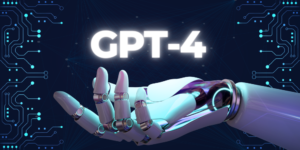“Our intelligence makes us human, and AI is an extension of that quality.”
– Yann LeCun (Professor – New York University)
With its increasing prowess, artificial intelligence bridges the gap between human ingenuity and computational mechanics in a comprehensive and user-friendly manner. AI in education has transformed every industry, improving decision-making processes, enhancing knowledge, and preparing individuals for the future.
About education, AI is enhancing the learning curve by personalizing information, providing analysis, and automating administrative tasks. AI-powered education systems have made a significant impact on learners globally. Following are some top benefits of artificial intelligence in education.
Personalized Learning
Personalized learning refers to the study managed by a single person. As every human is unique in its attributes and comprehension styles, the learning curves are also dissimilar. Artificial intelligence in education is used to muster data on a student’s progress and manage content: Students can progress at their own pace and receive assistance when needed. Visualize a classroom where each pupil has their tutor available 24/7.
Automation of Administrative Tasks
Together with the student’s growth, the teacher is also a valuable part of the system. They have to manage various aspects of an educational institution, such as exam grading, classroom management, and more. Artificial intelligence in education can cover most of the tasks, freeing time for teachers to interact with the students. It can detect patterns in a student’s work and alert the teacher on how it can be improved.
Personalized Educational Content
AI personalizes the entire content without any hassles. It can generate learning materials based on the students’ needs. For instance, if a student is interested in chemistry, AI can develop learning modules for quick comprehension and application. These modules are based on macro and micro-level topics like chemical kinetics, thermodynamics, heat processes, ionic bonding, and more.
Visual Tutoring
Tutoring is an essential aspect of learning. And, AI has the potential to deliver goods. It can be used to answer queries for various topics in text, audio, or video format. Moreover, you can extract information from AI-driven platforms, such as ChatGPT: The data can relate to an essay, historical facts and figures, or mathematical calculations.
24/7 Access to Education
AI-based education is not limited to temporal constraints. Pupils can access content anywhere. This is important for those who face problems in attending in-person classes. AI-based teaching can be accessed from any place, whether home or school. The flexibility factor is the best advantage for users who like to work from office, hybrid, or premises. AI in education provides unparalleled flexibility and accessibility.
Produce Smart Content
1. Digital Lessons
Digital learning links with textbooks in soft copies, study guides, bit-sized lessons, and more.
2. Information Visualization
New ways have been developed for comprehending information, such as web-based studies, visualizations, simulations, etc.
3. Update Learning Content
AI creates and updates the content, keeping the information updated and customized for different learning curves.
Artificial intelligence is a landmark invention in the teaching field. Students and teachers can benefit from the technology in various ways, such as providing feedback, setting timetables, quick feedback, and more. Are you ready for the transformational change with AI in education?









